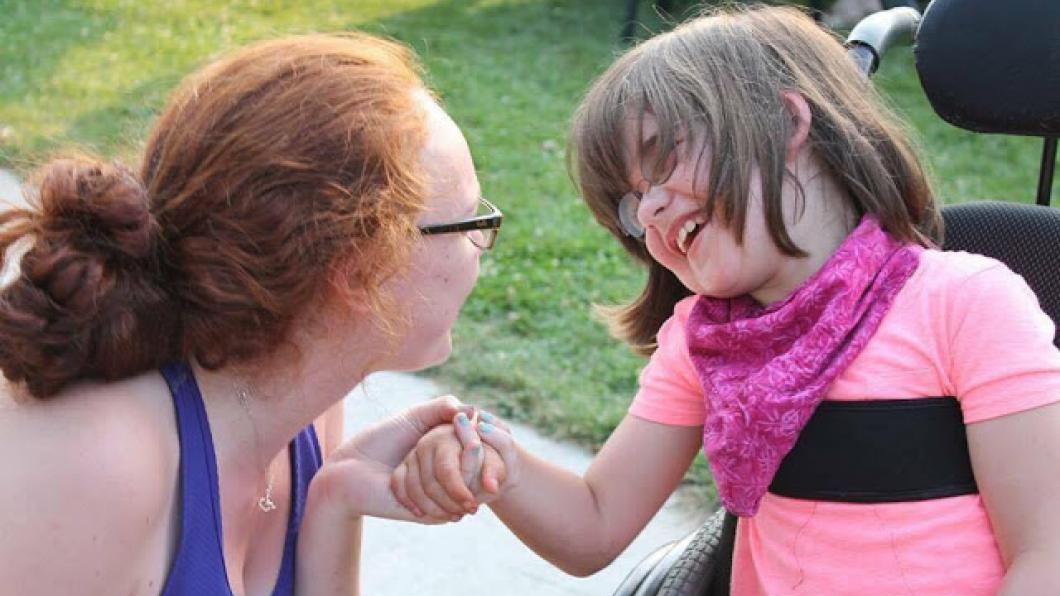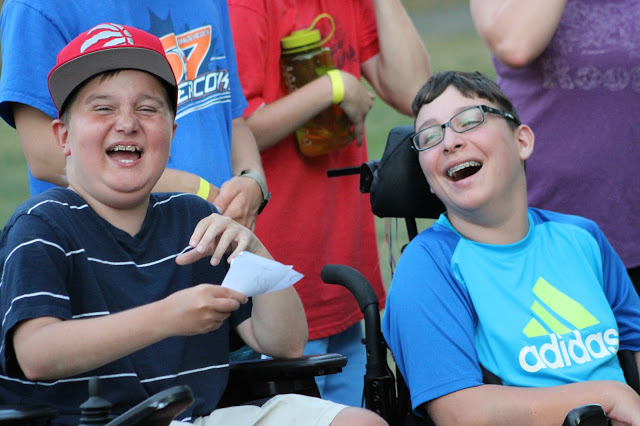
'Merrywood' sparked my passion to work in rehab
By Meaghan Walker
People who say Disney World is the most magical place on earth have clearly never been to Merrywood Easter Seals camp.
Merrywood looks like any other summer camp—with sailboats, canoes, kayaks, arts, music and drama, a dining hall, and cabins.
But a few simple changes transform this beautiful plot of land in Perth, Ont. into an accessible summer camp for children and youth with physical disabilities.
For example, the canoes have beanbags and lawn chairs available for kids who need additional support. The sailboats have deep seats and can’t be tipped by winds. The pool has chairs that can be lifted in and out of the water with a rotating handle. The dining hall has pureed options and adapted cutlery. And the paths connecting all programs and cabins are paved with smooth cement.
When I was 16, my English teacher suggested I spend a summer working at Merrywood.
I thought it would be a summer of learning new skills and expanding my knowledge about different abilities. But it gave me so much more. It became a place I loved like a second home and ignited my passion to study Rehabilitation Sciences this fall.
I’ve now spent four summers at Merrywood—working as a counsellor, cabin leader and leader in training programmer.Each summer I meet campers who teach me more than I could ever learn at home.
My first days at camp I remember wondering if I’d be able to change diapers and shower and feed campers. I was concerned that I would say the wrong things—such as “say your name to the group” to a camper who doesn’t speak, or “stand over there” to a child who may not stand. These fears vanished the moment my first camper rolled in.
Providing care, feeding and communicating in different ways is second nature to the staff at Merrywood. Changing diapers becomes something as natural as tying shoelaces. Feeding someone while eating your own meal is the norm.
We naturally ask questions that offer the camper many ways of providing answers (whether this is asking a yes/no question to a camper who moves their head as a response to each, or asking questions they can answer with pictures on a voice device or photo sheet).
Every person who works or volunteers at Merrywood is changed by it. As staff we receive tremendous training, learn so many skills and meet campers who push us to be innovative in the ways we adapt programs to suit different abilities.
Merrywood is one of the only places that’s fully accessible for campers. Youth are seen for their abilities and personalities, not their disabilities. Campers often say it’s the only place in the world where they can do everything and feel “normal.” Camp is a place of firsts, where youth try activities they can’t access at home.
For me, watching the interactions between campers is the most special part of camp. For example, one year I heard two young men with Duchenne muscular dystrophy talking.
The younger boy eagerly asked the older one, who was about 18, questions about how it felt to lose different physical functions over time.
The older boy answered the questions with patience, optimism and reassurance. This simple conversation has forever stood out in my mind as one of the many benefits of Merrywood.
On departure day parents often tell us that their child is so happy at camp that they count down the days all year. Parents express their confidence in the care provided and are grateful that their child has a place where disability isn’t a factor in taking part and belonging.
Merrywood changes lives every day for campers, staff and parents. The camp provides children and youth between seven and 26 with a fully accessible, inclusive oasis where they can forget about the challenges they face and enjoy camp the way any child should be able to.
Meaghan Walker was a student in the Ward Family Summer Student Research Program at Holland Bloorview this summer.
